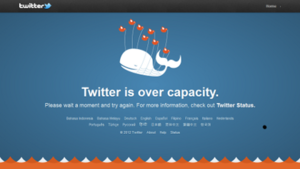
Great article on Financial Times No place to hide. It tells two alarming stories for getting the idea and then analyzes the changes and threats social networking insert into our lifes.
1st story: Graham Mallaghan was recently feeling very awkward because he started to increasingly found himself being intimidated and threatened with no apparent explanation. Both his wife and him had the brakes on their bikes cut. People were take very close photos of him on their phone. Or people waiting for him and shouting abuse such as ‘Wait till he comes out, we’ll kick his f****** head in’.
Then Mallaghan discovered on Facebook a group called “For Those Who Hate The Little Fat Library Man”, dedicated to insulting him. Mallaghan is a library assistant at the University of Kent in Canterbury and one of his responsibilities is to enforce the library’s noise regulations, and he believes the group was set up by students unhappy with his efforts.
At its peak the group had 363 members.
2nd story: In August, Laura Evans received a private message from someone she had cut out of her life a few years previously. She had changed her phone number and e-mail, and even moved house in a bid to lose contact with certain people, and now they were back in her life. The ease with which they had found her came as a shock.
The message said: ‘I bet you didn’t think you’d find me on here, well here I am. You changed your number, like a coward’ Let’s just hope we never have to bump into one another ever again.’
‘I was just sat there staring at the computer in shock for hours; I just kept re-reading the message over and over. I don’t think I ever once thought about it being unsafe – you just log off if anyone annoys you. But here, at the click of a mouse, was one of the people I had worked hard to distance myself from, and he had thrown a knife at my online social bubble.’
Evans shut down her account last month, but admits that she still feels like she is missing out on something by not having one.
Changes and threats social networking insert into our lifes.
The networking currency is ‘friends’ ‘ online camaraderie expressed in the links that users create between their homepages and the pages of others members of the network.
Social networking has rapidly transformed the way we interact with each other, and has started to redefine the idea of friendship, making it something much more nebulous than in pre-web days. But where casual friendship thrives, so does casual enmity. The free association that social networking sites put within everyone’s reach cuts both ways, creating an equally fast, free and easy tool for those who do not want to be our friends. And the social pressure users feel to create more and more connections scatters personal information about themselves more and more indiscriminately.
The rest in the brilliant article on Financial Times No place to hide, also mentioning “The other side of social networking” sites such as Enemybook (allows you to add people as Facebook enemies below your friends, specify why they are enemies and notify them that they are enemies. You can also see who lists you as an enemy, and even become friends with the enemies of your enemies), Snubster (similar to Enemybook) and Hatebook (a sort of open forum for abuse and aggression)
(photo by MegElizabeth_ licensed under Creative Commons)

 Every public tweet, ever, since Twitter’s inception in March 2006, will be archived digitally at the Library of Congress, the largest library in the world.
Every public tweet, ever, since Twitter’s inception in March 2006, will be archived digitally at the Library of Congress, the largest library in the world.![Reblog this post [with Zemanta]](https://i2.wp.com/img.zemanta.com/reblog_e.png?w=625)



 Some weeks ago
Some weeks ago 